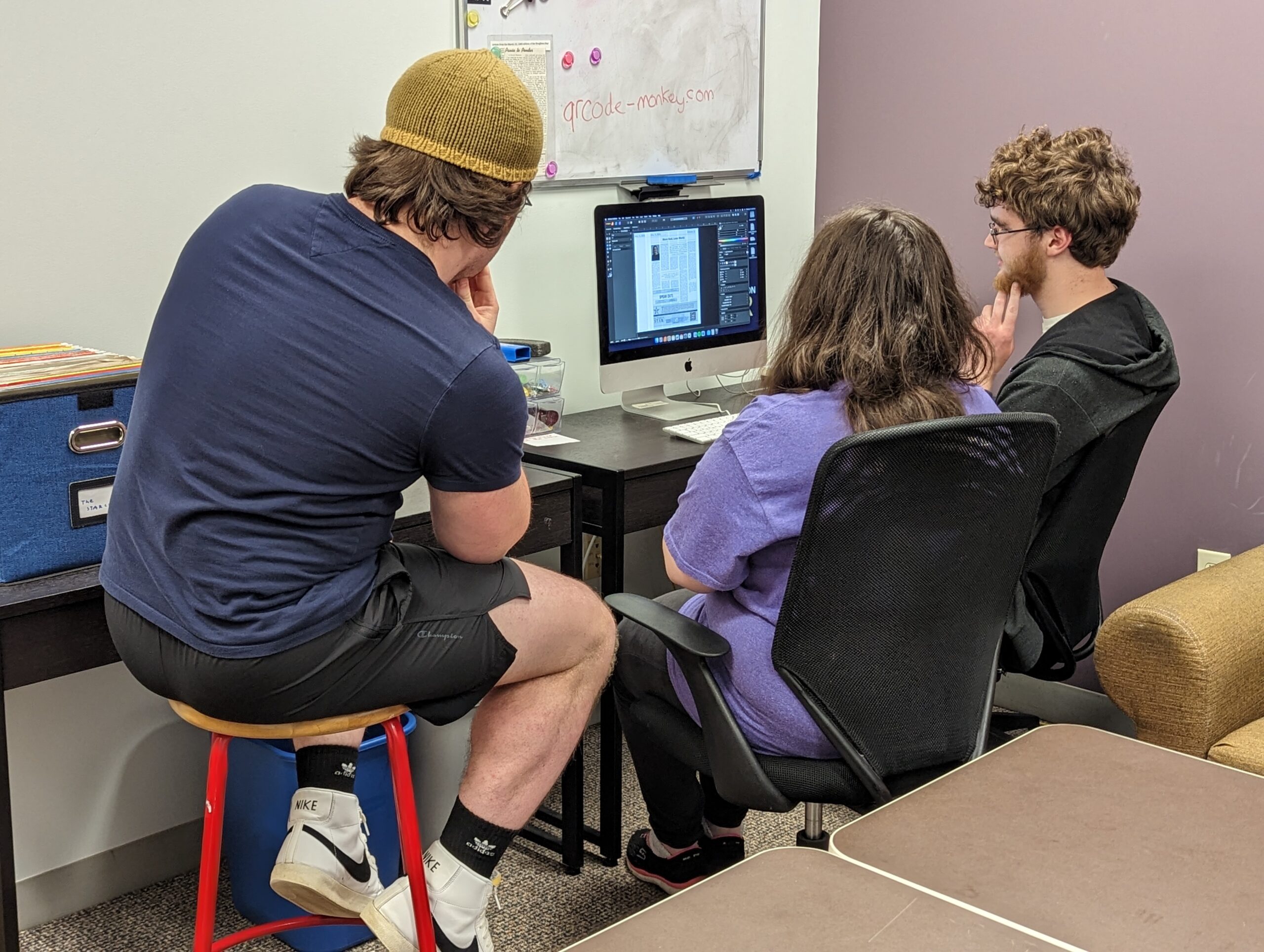Category: Stories In Focus
October 06, 2023
Stories In Focus
Freshmen Diversity on Campus
By Rebecca Dailey The 2023-2024 school year brings in 272 Freshmen, the largest freshman class since 2016. Thereasa Villnave (‘27)…
September 29, 2023
Stories In Focus
Inside the Lantern
By Isabella Bratton Houghton’s student-run literary magazine, The Lantern, is distributing their first issue of the 2023 Fall semester this…
April 21, 2023
Stories In Focus
Feature: Amanda Cox
By Jax Johnson The Director of Houghton’s Lyric Theatre, Professor Amanda Cox, who recently directed Houghton’s production of “Into the…

April 14, 2023
Stories In Focus
Inside the STAR
By the STAR Editors Have you ever wondered what goes into publishing each issue of the Houghton STAR? As you…

March 31, 2023
Stories In Focus
Feature: STARbot 9000 (STAR April Fools 2023)
by STARbot 9000 Due to several non-financial reasons, The Administration of Houghton University is introducing a new plan to replace…
March 24, 2023
Stories In Focus
Feature: Linda Knapp
By Anna Catherman The Ortlip Gallery is one of the highlights of Houghton University’s campus. For years, the gallery was…
February 17, 2023
Stories In Focus
Feature: Student Council
By Christian Welker On Wednesday, Feb. 22, The Student Council will hold Elections for the 2023 Fall semester. After replacing…
February 10, 2023
Stories In Focus
Feature: Life Together Groups
By Anna Cathermann Bible studies, book studies, and basketball are just a few of the opportunities that exist for spiritual…
February 03, 2023
Stories In Focus
Feature: Honors Seminars
By Marith Anderson With the availability of Honors seminars at Houghton University, faculty and students alike are provided with the…
January 27, 2023
Stories In Focus
The Becoming of President Lewis
By Joshua Carpenter As the President of Houghton University, Dr. Wayne D. Lewis is a busy man. His responsibilities as…
